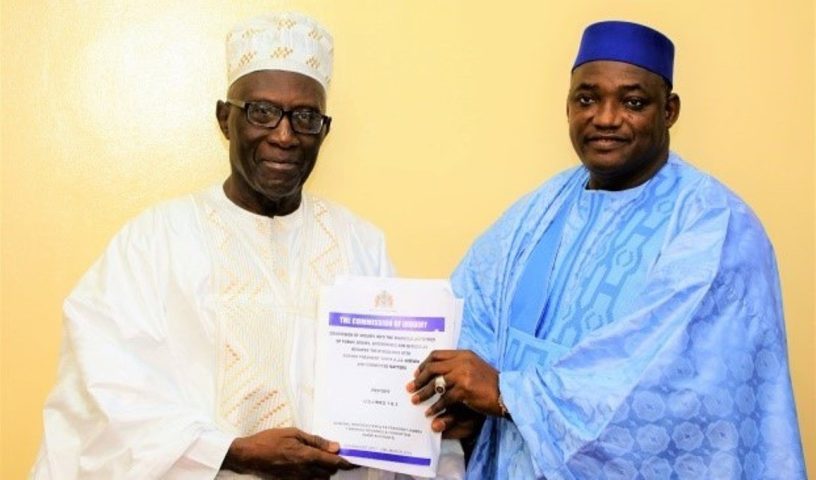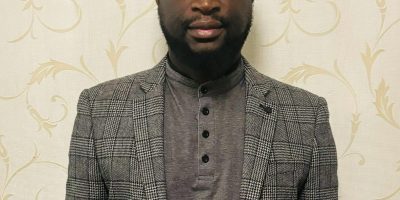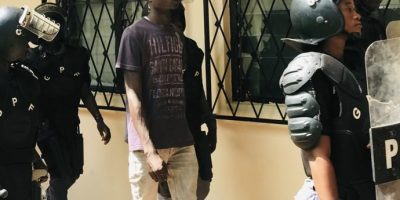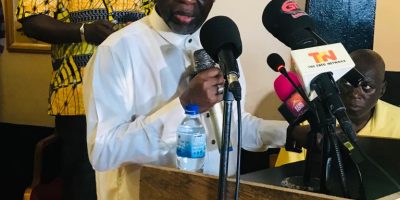 by Alagi Yorro Jallow.
by Alagi Yorro Jallow.
Fatoumatta: After decades of corruption and institutional decay, the Gambia’s President, Adama Barrow, has not embarked on a noble quest to rid the country of the immorality of the cankerworm of corruption in the Gambia. Years of clientelist and patronage relationships have ensured that graft is firmly entrenched in the everyday lives of the citizenry.
According to Sessional Paper No. 10 of 1965, post-colonial Gambia faced existential threats, namely: poverty, and ignorance. This trio of misery remains mostly intact to date. To that list, I would add corruption and decay, divisive ethnic politics, inept leadership, and lately, an ever-increasing public debt. In other words, our existential threats have only worsened or increased over the years.
Fatoumatta: Reports say a third of the country’s budget is lost to corruption and institutional decaying in the civil service performance annually. The President himself acknowledges during his annual State of the Nation address before the National Assembly that corruption and decay it is a threat to national. What the President intends is, therefore, no mean feat. Should he succeed in fighting corruption and institutional decay, it may be the hallmark of his second term, the very definition of his legacy, as the slayer of the dragon of graft. However, our legal, institutional, and policy frameworks for combating corruption are fundamentally flawed.
Accordingly, the Gambia government, under the leadership of President Barrow and his Attorney General, cannot hope to get far in the fight against corruption without a complete overhaul of those frameworks. Our political class knows this, but they will not do anything about it, because they have an interest in the continuation of the current system and the networks and patronage that go with it. Not even an angel or magician would succeed with our current legal, institutional, and policy frameworks. Even the men from Qureshi and Nazareth would not get anywhere in fighting corruption and institutional decay.
Fatoumatta: President Barrow did not appoint a Director of Public Prosecution (DPP), who is supposed to be the face of the campaign to fight against the cankerworm of corruption in the Gambia. After three years of the torpidity of the Attorney General and the Minister of Justice, Abubakar Baa Tambadou has not unveiled any radical anti-corruption platform measures. This drawcard has the approbation of most of a nation wearied by years official abetting. Soft-spoken, he has, so far, not walking the talk. The courts and the police prosecution are now replete with hundreds of graft suspects at various stages of a criminal. Like the predecessor governments, who were all “sound and fury signifying nothing,” the Attorney General Tambadou has proved that his bite is worse than his bark,
because of the nature of past scandals that resulted in losses of millions of Dalasis, there has been a clamor for high-profile convictions. This is because of the perception that only small financial crimes are disproportionately punished in the Gambia, leaving the architects of mega scams with nary a slap on the wrist. Undoubtedly, why President Adama Barrow government does not arrest thieves, and arraignment them before the courts, particularly, of leading figures in his government both past and current senior government officials as well as people in business, who has elicited profound excitement of mega sleaze. However, what has been done over corruption allegations that have stopped the nation dead in its tracks.
Fatoumatta: When will President Adama Barrow and his Attorney General ever embark on a fight against corruption? Their reticence is likely because they think Gambians are only interested in the Corruption of President Yahya Jammeh and his top government officials, following the much-publicized Janneh Commission of Inquiry that probe into the Assets and Properties of the former President Jammeh and his business associates and cronies.
Adama Barrow has mere illusions about what his government can do because he does not fully understand what it is anchored upon corruption. Without corruption, his government falls, and the government disintegrates. It is corruption that binds it to his tactical alliance partners together. When that goes, they will all go their separate ways.
Fatoumatta: The only Corruption that President Barrow and his Attorney General and Justice Minister concentrated on is that which is against their political opponents and solely Yahya Jammeh and his cronies and in order to fix them, humiliate them, and destroy them. However, is this not the only corruption that threatens our country today? The answer is no. The corruption that is threatening the Gambia is that which is coming from President Barrow’s government and the Tactical Alliance partners as well as his past and present ministers. However, as we have seen with the issue of Corruption, Adama Barrow never fights the wrongs or abuses of his members. When Adama talks about corruption, he is only talking about the corruption that is committed by Yahya Jammeh. Equally, we will never hear Adama talk about corruption, and we know that it is not the corruption of members of his league but rather that which he thinks should be put around the necks of his political opponents and that of his predecessor.
Fatoumatta: President Adama Barrow and his Attorney General do not have a ‘Fight Against Corruption strategy’ at all. They are involved in drama. The Janneh Commission of Inquiry Report that probe into the financial dealings of former President Yahya Jammeh and his top government officials and his business associates and several financial institutions for their alleged economic atrocities, the White Paper is gathering dust in some shelves. Right? It is just a good report, not to be followed. The government of Adama Barrow is morally conflicted to fight corruption and asked the President then! All these renewed Public Relations and propaganda should not wow us into believing. Not so quickly.
Fatoumatta: Those adversely mentioned in the report and we realize that President Barrow and his Cabinet are acting at State House to revisit the Judiciary and target those they want to weaken before 2021. We all know that we hate corruption. However, messing up the war against corruption worries us more. Unless we do not know what corruption is in the Gambia, it has been said that other countries have a Mafia, but in the Gambia, the Mafia has a country. Cabinet Ministers are involved, members of the presidency, public service honchos, the police, the departments, Parastatals, the executive agencies, revenue corruption, debt corruption, budget corruption, billions paid for non-delivery in ministries, etc. there is no strategy nor will to fight corruption in the Gambia.
On matters of governance, we are better believing them who do not have a vested interest rather than believing beneficiaries of corruption, stealing, looting, and plunder.
Fatoumatta: Do not get excited about that famous “Friday afternoon” press conference shaming of individual personalities because they are seen to be corrupt, and the government wants to embarrass these suspects. There is no will to fight corruption, folks believe me. Cases are being messed so that the courts throw them out for lack of evidence, then the Judiciary is labeled corrupt and the “weakest link” to the war against corruption. What a genius way to say that President Adama Barrow was so committed to slaying the dragon, but the Judiciary and the legislature messed it up? Has the President sacked any one of those adversely mentioned in the Janneh Commission of inquiry report while serving top position in government after those stern warnings in public? We Gambians are amazing.
No, we want due process. Listen, Lawyers are in an unusual profession in the State. That is how it is because the State is about the law like Islam is about the Quran. An Act of the National establishes the Commissions, and their regulation is governed by the Judiciary and the AG’s office. Why? Because they represent clients. If we start arresting lawyers and godfathers in the profession because of crimes of their clients, we are, in essence, promoting lawlessness. Follow the due process, demand for due process. They are officers of the court. If we think they do not play a role in the administration of justice and in upholding the principle of the independence of the Judiciary, then we have not given this matter serious thought.
Fatoumatta: Since we did not appoint a Director of Public Prosecution, the Attorney General is required with a great percipience to discern that not every problem needs to be resolved by the institution of criminal proceedings. There will be many challenges that will answer to some form of administrative action permissible in law. The Attorney General has many powers and can recommend a raft of alternative solutions. Not everything that lands on his desk need to be prosecuted in court.
The fight against corruption must not be personalized, as this has the deleterious effect of polarizing the country. Concerned citizens allege that President Adama Barrow is behind his woes. For the corruption fight to start with the goodwill of all Gambians, the President may require a slice of humble pie. He may need to retract the revisit statement. Eating his words will not cause him indigestion. It will do good rather than harm, enhance rather than detract from his stature as a crusader against graft.
Fatoumatta: The Justice Ministry has been playing to the gallery on the corruption cases in support of the President’s war against corruption. Adama Barrow will regret his current stance of not standing up for the Judiciary and its independence. Gambians, not The Attorney General will regret the revisiting the Judiciary policy.
The Gambia Government’s Ethical Dilemma Fighting Corruption?




Ma sha Allah great and thanks for sharing